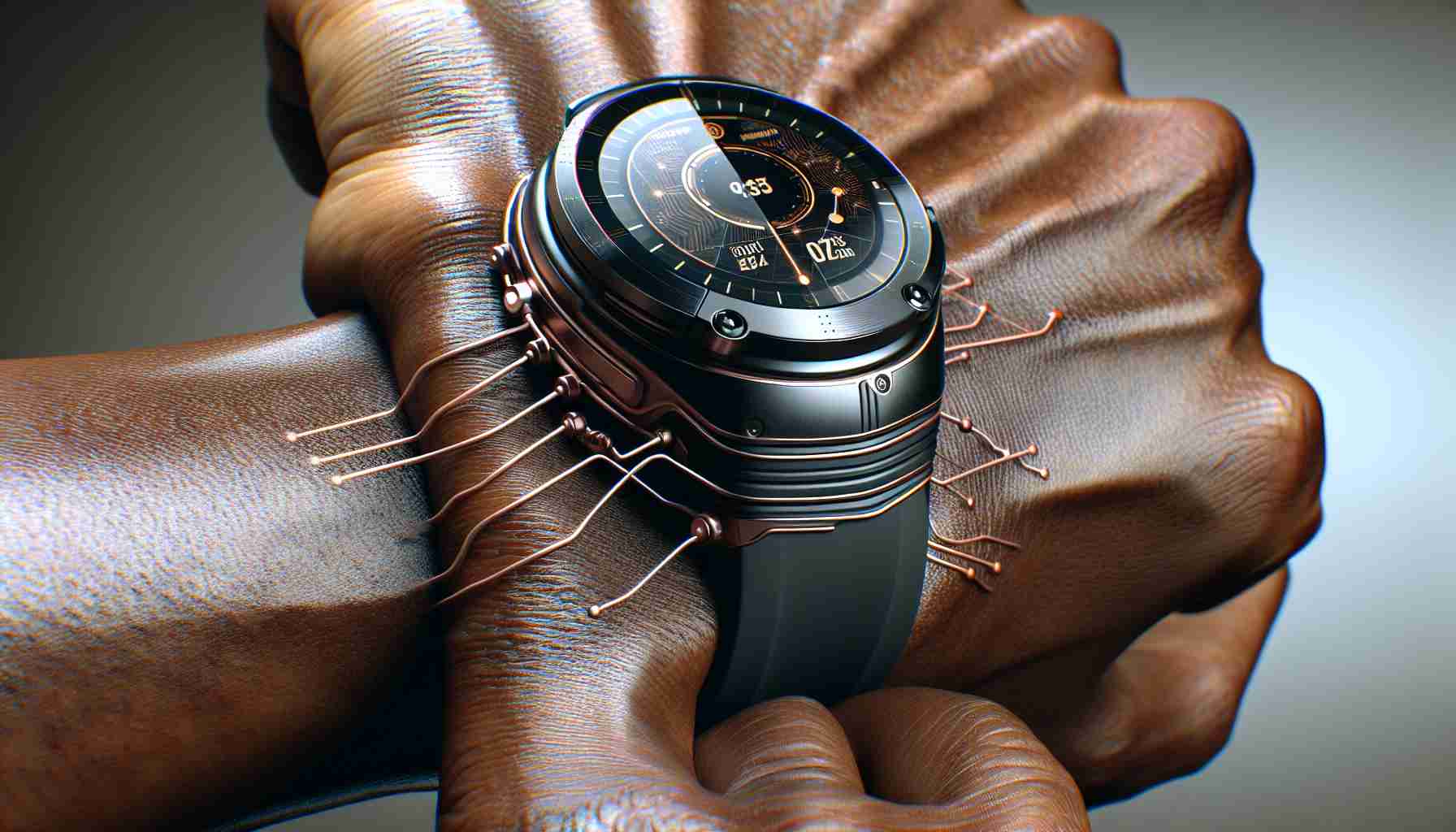Next-Generation Wearable Technology Enhances Health Insights
In a remarkable innovation in wearable technology, researchers have unveiled an advanced smartwatch that incorporates a sweat sensor—streamlining health monitoring for users. Originating from the Institute of Solid State Physics at the Hefei Institute of Physical Sciences of the Chinese Academy of Sciences, this cutting-edge device stands poised to transform personal healthcare.
The newest feature of this smartwatch is its remarkable ability to continuously monitor the user’s sweat, providing real-time analysis of various vital substances, such as potassium, sodium, and calcium. By extracting and examining these chemicals, the watch extends beyond simple step counting and heart rate tracking to delve deeper into one’s physical condition.
At the heart of this innovation is a microfluidic chip combined with a highly sophisticated sensor array. Together, they afford the watch the dexterity to evaluate several ions found in sweat simultaneously. This multiplexed analysis is not just an advancement in technology—it’s a leap forward in personalized healthcare.
As the smartwatch decodes the concentrations of ions, it can offer actionable insights. Individuals could benefit from tailored suggestions for managing fluid intake and electrolyte replenishment, thereby avoiding heat-induced cramps and maintaining optimal hydration.
Moreover, the potential applications of this technology do not end at hydration management. It suggests exciting progress in the field of sports science, where it could contribute to optimized training regimens by analyzing exercise intensity and foretelling muscle fatigue. Users of this smartwatch might soon enjoy an unparalleled level of control over their physical well-being, owing to this seamless and non-invasive monitoring technique.
The Most Important Questions
– What are the potential personal health monitoring capabilities of the sweat-analysis smartwatch?
The smartwatch can monitor vital substances in sweat such as potassium, sodium, and calcium, providing insights into the user’s health, hydration levels, and potentially other medical conditions.
– What technology underpins the smartwatch’s sweat-analysis feature?
A microfluidic chip and a sophisticated sensor array enable the smartwatch to analyze multiple ions present in the sweat simultaneously, offering personalized health insights.
– How might the smartwatch impact the field of sports science?
The device could assist in optimizing training programs by monitoring exercise intensity and predicting muscle fatigue, thus allowing athletes to customize their workouts for better performance and recovery.
Key Challenges and Controversies
– Data Privacy and Security: With increased personal data collection, there are concerns about how this data is stored, shared, and protected. Ensuring user privacy and securing their health information is crucial.
– Accuracy and Reliability: Sweat analysis is a complex process, and ensuring the smartwatch provides accurate and consistent readings is essential for it to be a dependable health monitoring tool.
– User Dependency: There is a risk that individuals may become overly reliant on technology for health insights, potentially neglecting medical advice from healthcare professionals.
Advantages and Disadvantages
Advantages:
– Offers insights into personal health in real-time, contributing to better hydration and overall well-being.
– Non-invasive technique that allows for continuous monitoring without interrupting daily activities.
– Personalized data can lead to customized health recommendations and improved management of physical conditions.
Disangles:
– Increased data collection may raise privacy concerns and necessitate robust data protection measures.
– There might be limitations in the technology’s ability to analyze a comprehensive range of health markers compared to traditional medical devices.
– Potential for inaccurate readings and need for regular calibration to maintain reliability of the data.
Suggested Related Links
– For sports science and athlete performance insights: Gatorade Sports Science Institute
– For health wearables and technology news: Wearable Technologies
– For developments in microfluidics and sensor technology: Nature Research
– For exploring medical and health information: Mayo Clinic
Please note that these are just a selection of topics related to the technology; the specific device was not explicitly mentioned in larger databases and archives, and thus the links provided relate to the general domain of each mentioned topic.
